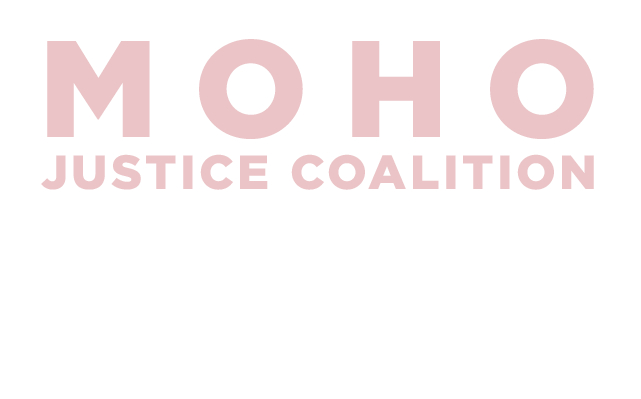Why do we honor International Day to End Violence Against Sex Workers on December 17th?
“International Day to End Violence Against Sex Workers was established in 2003 by activists for sex worker rights including Dr. Annie Sprinkle, porn star, writer & activist and Robyn Few and Stacey Swimme, sex workers and co-founders of the Sex Workers Outreach Project.
Dec 17th was originally chosen to commemorate the victims of the Green River Killer who murdered dozens of sex workers and went undetected for decades in part because of who he targeted.”
*Get yours during MO Ho Justice’s pop-up Ho-liday Fundraiser … launching soon!
Today, we also bear witness to the many normalized forms of violence** against sex workers (physical and sexual assault are just the tip of the iceberg):
Invasions of privacy
Outing: disclosing a person’s lived/living experience in sex work without their consent
Doxing: publicly releasing a sex worker’s personal information in connection to their sex work persona
Stalking and online harassment
Exploitation
Unsafe working conditions in clubs or brothels; extortionate “house fees” or “management fees”
Pimps/traffickers weaponizing sexual labor
Whorephobic language
Describing sex workers with degrading and dehumanizing language
Housing discrimination
Refusing shelter placement, transitional housing, or a lease to a person on the basis of their involvement sex work
Family policing
Prejudging sex workers as “unfit” to parent and forcibly removing their children
Denying sex workers’ parental rights on the basis of their work
Deplatforming
Banning, shadow banning, or suspending sex workers from social media and other digital spaces
Criminalization
Sexually assaulting sex workers and trafficking survivors during “stings”
Charging sex workers with murders they did not commit (felony murder)
Normalizing police profiling and harassing BlPOC and queer/trans people as “curbing prostitution”
Medical violence
Delivering stigmatizing, dehumanizing, sexually violent, or otherwise substandard care to patients who are known or suspected to be engaging in sex work
Employment discrimination
Refusing employment to people who have lived/living experience in sex work
Financial violence
Chargebacks, refusing to pay for services, or stealing the worker’s wages back after services have been rendered
Banks and payment processors refusing services to sex workers, or even seizing their money
Imperialist violence
Unequal Status of Forces agreements which shield occupying military personnel from prosecution for violence against local sex workers
Occupying military forces trafficking local women or coordinating sex work on military bases (see: Japanese Imperial Army trafficking “comfort women,” US military camp towns in Korea)
Countries denying entry to individuals with lived sex work experience
**This is not an exhaustive list!
Ending violence against sex workers means divesting from whorephobia and the violent systems that harm us all, while deepening our investment in:
Right to privacy
Right to bodily autonomy
Reproductive justice
Healing justice
Disability justice
Racial justice
Indigenous sovereignty
Workers’ rights
Gender and sexual liberation
Non-violent communication
Housing justice

